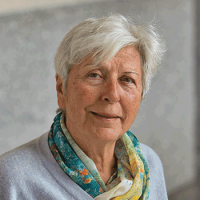Tunisia after the Elections: Can a Viable Coalition be Formed?
Two experts discussed Tunisia’s recent legislative elections and upcoming presidential elections.
On November 21, the Middle East Program at the Woodrow Wilson Center hosted an event “Tunisia after the Elections: Can a Viable Coalition be Formed?” with Marina Ottaway, a Senior Scholar at the Wilson Center, and Robert Worth, a Public Policy Scholar at the Wilson Center and a journalist at the New York Times. Haleh Esfandiari, Director of the Middle East Program at the Wilson Center, moderated the event.
Worth and Ottaway began by detailing their impressions of the campaigns and platforms of Nidaa Tounes and Ennahda, the two frontrunner parties in Tunisia’s October 26 elections. Despite the results of the elections—in which Nidaa Tounes came in first and Ennahda in second—both speakers expressed their impression of Nidaa Tounes as the weaker of the two parties in terms of structure and cohesion. Founded in 2012 by former Prime Minister Beji Caid Essebsi, Nidaa Tounes draws together a motley of Destourians (the party of former presidents Habib Bourguiba and Zine El Abidine Ben Ali), leftists, and individuals who see the party as the only viable opposition to Ennahda rule. Worth explained that residual anger toward Ennahda, due to the party’s perceived lackluster response to Tunisia’s socioeconomic and security issues, largely explains Nidaa Tounes’ win. Ottaway stated, however, Nidaa Tounes did not win as much of a decisive victory as has been widely portrayed. She stressed that the election results were more complex than the simple victory of Nidaa Tounes over Ennahda, and that Ennahda believes it will make a comeback.
For the time being, Nidaa Tounes must build what Ottaway termed an “alliance against nature.” While Nidaa Tounes does not wish to consider allying with Ennahda, any future arrangement will involve cooperation between the two parties, Ottaway contended. Rather than being marginalized in the opposition, Ennahda will serve as part of a governing coalition. Explaining that although governments of national reconciliation can sometimes prove dangerous because they lack an opposition, Ottaway stated that Tunisia may have no other choice—and this may be in the country’s best interest. Nidaa Tounes needs to form a coalition of at least 109 seats to hold the majority of the 217 seats in Tunisia’s parliament. In order to avoid forming an alliance with Ennahda, Ottaway said Nidaa Tounes would have to join together with a somewhat “strange” configuration of smaller parties lacking similar ideologies and agendas. If this were to occur, however, Ottaway questioned whether the coalition would even have the capacity to govern. With little in common, the patchwork of parties would face difficulty passing Tunisia’s needed economic and social reforms.
Ottaway moved on to explain the stakes of the November 23 presidential elections. The new Tunisian president will preside over security and foreign affairs and will have the ability to nominate the next prime minister. He or she will have the power to veto laws and will serve as protector of the constitution. The two main contenders for the position are Beji Caid Essebsi and Moncef Marzouki. Despite having served as Tunisia’s previous president, Marzouki lacks popularity, Worth explained. When asked whether the speakers feared a monopoly of power by Nidaa Tounes should Essebsi win the presidency as well, Worth responded that there is the distinct possibility that Nidaa Tounes might fall apart due to its lack of cohesion. For Ottaway, even if Essebsi wins the presidency, the challenge of creating a coalition capable of actually governing would remain. If Nidaa Tounes does not succeed in putting together a coalition that actually works, the constitution will not be implemented and Tunisia’s much-needed economic reforms will not be carried out.
By Emily Parker, Middle East Program
Speakers

Former Senior Research Associate and Head of the Middle East Program, Carnegie Endowment for International Peace

Contributing Writer, The New York Times Magazine; former Beirut Bureau Chief, The New York Times
Hosted By

Middle East Program
The Wilson Center’s Middle East Program serves as a crucial resource for the policymaking community and beyond, providing analyses and research that helps inform US foreign policymaking, stimulates public debate, and expands knowledge about issues in the wider Middle East and North Africa (MENA) region. Read more
